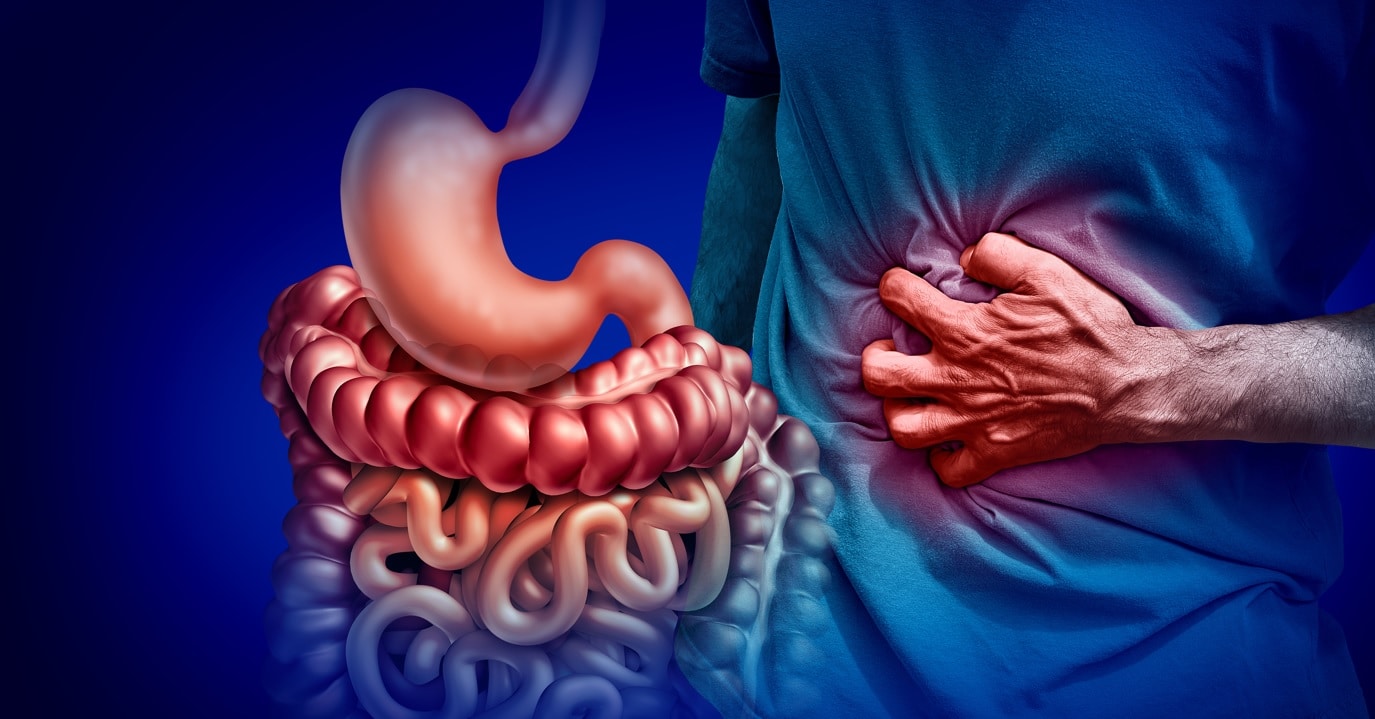Articles

Crohn’s Disease
Everything you need to
know about Crohn’s Disease and its symptoms.
What is Crohn’s
Disease?
Crohn’s disease is a
chronic inflammatory condition that can affect any part of the digestive
tract, though it most commonly affects the intestines and colon.
Causes of Crohn’s
Disease
The exact cause is
still unknown, but the condition appears to result from the immune
system attacking the lining of the gastrointestinal tract, affecting the
full thickness of the intestinal wall. It is characterized by patchy areas
of inflammation with segments of healthy tissue in between.
Crohn’s affects both
men and women equally.
Risk Factors
- Smoking cigarettes
- Family history of Crohn’s
- Use of anti-inflammatory medications
Symptoms of Crohn’s
Disease
Symptoms may appear gradually
or suddenly and can range from mild to severe.
Diet and stress can worsen the severity of symptoms.
Common symptoms during
flare-ups include:
- Abdominal pain
- Severe diarrhea
- Fatigue
- Mouth ulcers
Possible
Complications of Crohn’s Disease
- Appetite and weight loss
- Nutritional deficiencies
- Osteoporosis
- Kidney stones
- Stomach ulcers
- Intestinal obstruction
Crohn’s may also cause
deficiencies in:
- Calcium
- Vitamin D
- Magnesium
- Vitamin K
- Iron
Treatment of
Crohn’s Disease
There is no
permanent cure, but medications and dietary changes can help manage
symptoms.
Important notes:
- Probiotic supplements are not recommended during
flare-ups
- Stress reduction is essential
- Regular physical activity is encouraged
- Smoking cessation is crucial
Dietary Guidance
for Crohn’s Disease
There is no
one-size-fits-all diet for Crohn’s patients. However, during active
flare-ups, it is typically recommended to follow a low-fiber, low-residue
diet, and limit or avoid dairy.
Key dietary tips:
- Eat small, frequent meals
throughout the day
- Drink plenty of fluids
- Some may require vitamin or mineral
supplements
- Diet should be tailored to each person’s
symptoms and triggers
- Consulting a doctor and a dietitian is essential for personalized care
Food
Recommendations
|
Food Group |
Foods to Avoid
or Limit |
Recommended
Foods |
|
Starches |
Bran bread, oats,
wheat germ |
White bread |
|
Dairy |
Regular milk |
Lactose-free milk |
|
Fruits |
Raw fruits |
Peeled or cooked
fruits |
|
Vegetables |
Raw vegetables,
especially cruciferous (e.g., cauliflower, broccoli) |
Cooked and peeled
vegetables |
|
Fats |
Butter, low-fat
sauces |
Olive oil |
|
Proteins |
Legumes (e.g.,
lentils, chickpeas), fried meats/fish/chicken |
Skinless chicken,
grilled fish, veal |
|
Others |
Alcohol, spicy
seasonings |
— |
